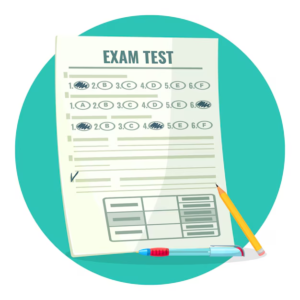Mastering essay questions in judiciary mains exams is essential for demonstrating your ability to articulate legal concepts, analyze issues, and present clear arguments. Writing impactful essays requires a combination of structured thinking, in-depth subject knowledge, and strong writing skills. By focusing on strategies for clear argumentation, effective structuring, and time management, aspirants can improve their essay quality and avoid common mistakes. This guide provides actionable tips to help candidates approach judiciary mains essay questions with confidence and achieve excellence.


Choose Wisely
The essay section in the mains examination often presents a list of topics covering both legal and socio-cultural themes. It is essential to approach this section strategically by selecting the essay topic that aligns with your strengths and interests. While both types of essays are equally important, choosing the right one allows you to demonstrate your knowledge and analytical skills effectively. Take the time to evaluate the essay prompts and choose the one you feel most confident about addressing comprehensively.

Structure Matters: Introduce, Develop, and Conclude
Crafting a well-structured essay is crucial for conveying your ideas clearly and convincingly. A well-organized essay should consist of an introduction that introduces the topic and provides a roadmap for the reader, a body that presents your arguments logically and coherently, and a conclusion that summarizes your main points and offers a thoughtful closing statement. Ensure that each paragraph in the body addresses a specific aspect of the topic, supported by relevant evidence and legal references where applicable.

Mind Map Your Way to Success:
A powerful tool that can aid in organising your thoughts and ideas for the essay is a mind map. Before you start writing, create a mind map that outlines the main concepts, arguments, and examples you plan to include in your essay. This visual representation will help you maintain a clear structure and stay focused on the central theme throughout your writing. It also ensures that your essay flows logically and cohesively, making it easier for the examiner to follow your thought process.


Embrace Contemporary Developments:
A distinguishing feature of a top-notch essay is the incorporation of contemporary developments related to the chosen topic. Aspiring judges should be well-read and stay updated on the latest legal, social, and cultural events and changes. Including recent developments in your essay demonstrates your awareness of real-world implications and adds depth to your analysis. This practice also showcases your ability to contextualise legal concepts and apply them to current situations.

Read Newspapers for Vocabulary and Knowledge:
Newspapers serve as a treasure trove of knowledge and vocabulary for judiciary aspirants. Regularly reading newspapers exposes you to diverse topics, legal debates, and perspectives. Pay attention to editorials, op-eds, and articles related to law, society, and governance. These pieces often present nuanced arguments and sophisticated language that can inspire your own writing. A rich vocabulary and up-to-date knowledge enhance the quality of your essay and demonstrate your intellectual prowess.
In conclusion, excelling in essay questions in judiciary mains exams demands consistent practice, a clear understanding of key topics, and attention to detail in structuring and argumentation. Prioritizing time management, refining content quality, and avoiding common errors are crucial steps in crafting impactful essays. By following these strategies, judiciary aspirants can enhance their writing skills, effectively present their knowledge, and stand out in the competitive exam environment.
If essay-based questions are still the villian in your nightmares, then we at Edzorb are the knights for your rescue and the mock test series are your armour. Check out our resources now! Good luck on your path to excellence!
Related Posts
1. Mastering the Art of Judicial Brilliance: A Witty Guide to Practising Mock Tests
3.Delving into the treasure trove of previous year papers
4.Mastering the Art of Answer Writing
5.Unlocking Success in Judiciary Mains: Mastering Translation-based Questions
6.Mastering the Art of Judgment Writing: A Guide for Judiciary Aspirants
Frequently Asked Questions
Start by analyzing the essay prompt carefully. Create a clear outline, address key points with structured arguments, and ensure the content is coherent and relevant.
1.Break down the topic into introduction, body, and conclusion.
2.Use examples and case laws where relevant.
3.Stick to the word limit and avoid verbosity.
Practice writing essays on diverse legal and social topics. Read editorials, legal journals, and previous toppers’ answers to learn effective writing techniques.
1.Lack of clarity in argumentation.
2.Failing to structure the essay properly.
3.Neglecting time management and exceeding the word limit.

 Podcast
Podcast








 Features
Features






